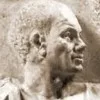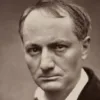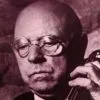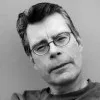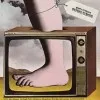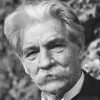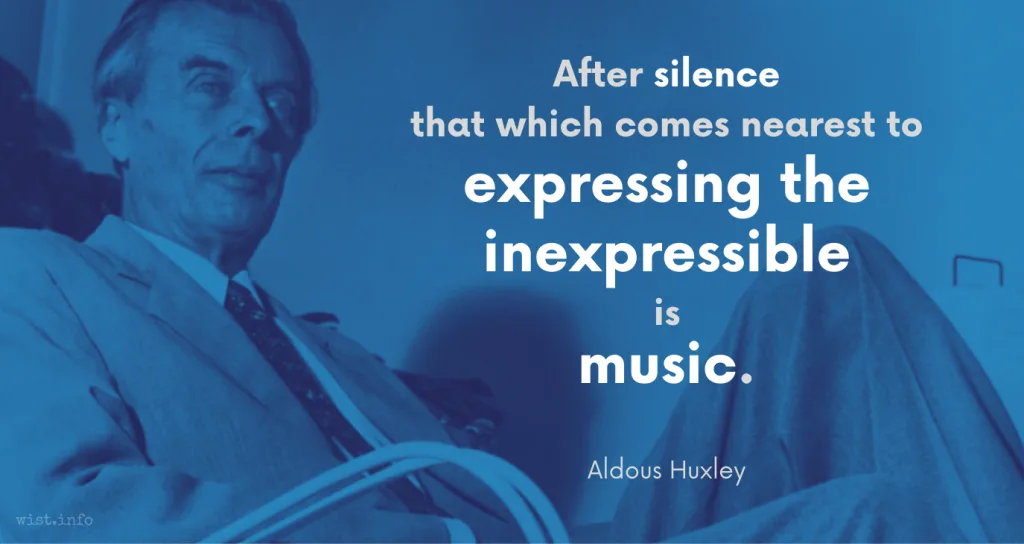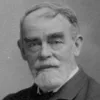Apollo: all I ask is what I own already,
And the peace to enjoy it, sound in body
And mind, and a promise of honor
In old age, and to go on singing to the end.[Frui paratis et valido mihi
Latoë, dones, et precor, integra
Cum mente; nec turpem senectam
Degere, nec cithara carentem.]Horace (65-8 BC) Roman poet, satirist, soldier, politician [Quintus Horatius Flaccus]
Odes [Carmina], Book 1, # 31, l. 17ff (1.31.17-20) (23 BC) [tr. Raffel (1983)]
(Source)
This poem is said to have been inspired by the new temple to Apollo built by Augustus on the Palatine in AUC 726. It is framed as being from a poet (likely Horace himself) considering what to ask from Apollo as a blessing. These are the concluding four lines.
Apollo here is referred to as the son of the goddess Latona (Greek Leto).
The reason for the longer-than-usual list of translators is that this passage is quoted at the end of Montaigne's Essays, Book 3, ch. 13 "Of Experience," the final essay in his collection, written in 1587, and translations from that context are also included here.(Source (Latin)). Alternate translations:Apollo graunt, enjoy health I may
That I have got, and with sound minde, I pray:
Nor that I may with shame spend my old yeares,
Nor wanting musike to delight mine eares.
[tr. Florio (1603)]Latona's Son,
In Minde and Bodies health my own
T' enjoy; old Age from dotage free,
And solac'd with the Lute, give me.
[tr. Fanshaw; ed. Brome (1666)]O (great Apollo) grant
To me in health, and free from life's annoy,
Things native, and soon gotten to enjoy;
And with a mind compos'd old Age attain,
Not loathsome, nor depriv'd of Lyrick strain.
[tr. "Sir T. H."; ed. Brome (1666)]A Mind to use my present Store
With Health and Life, but not so long
As brings Contempt, or cramps my Song;
Grant this Apollo, and I ask no more.
[tr. Creech (1684)]O thou son of Latona, grant me to enjoy my acquisitions, and to possess my health, together with an unimpaired understanding, I beseech thee; and that I may not lead a dishonorable old age, nor one bereft of the lyre.
[tr. Smart/Buckley (1853)]O grant me, Phoebus, calm content,
Strength unimpairEd, a mind entire,
Old age without dishonour spent,
Nor unbefriended by the lyre!
[tr. Conington (1872)]And health
Give thou, Latoë, so I might
Enjoy my present wealth!
Give me but these, I ask no more,
These, and a mind entire --
And old age, not unhonour'd, nor
Unsolaced by the lyre!
[tr. Martin (1864)]Give me health in myself to enjoy the things granted,
O thou son of Latona; sound mind in sound body;
Keep mine age free from all that degrades,
And let it not fail of the lyre.
[tr. Bulwer-Lytton (1870)]Grant it to me, Apollo, that I may enjoy what I have in good health; let me be sound in body and mind; let me live in honor when old, nor let music be wanting.
[tr. Cotton/Hazlitt (1877)]Grant it to me, Apollo, that I may enjoy my possessions in good health; let me be sound in mind; let me not lead a dishonourable old age, nor want the cittern.
[tr. Cotton/Hazlitt (1877), alternate]Son of Latona, grant me, I pray, to enjoy in health of body and soundness of mind what I possess, and let my old age be honourable and rendered happy by the charms of music.
[tr. Elgood (1893)]Give me then health, Apollo; give
Sound mind; on gotten goods to live
Contented; and let song engage
An honoured, not a base, old age.
[tr. Gladstone (1894)]Health to enjoy the blessings thou givest me,
Grant me, Latoe, with a sound mind, I pray;
Nor let my age be e'er unhonour'd.
Nor unattended with lyric measures.
[tr. Phelps (1897)]Grant me in health to relish what I have
In store, Latona's son, with mind I pray,
Unclouded -- and to pass an eld
Not base, nor of my harp deprived.
[tr. Garnsey (1907)]Grant, god, that with my lot
I live content, hale, and still fresh my gift, --
Grant that in age I may not drift
Long years, my lyre forgot.
[tr. Marshall (1908)]Grant me, O Latona’s son, to be content with what I have, and, sound of body and of mind, to pass an old age lacking neither honour nor the lyre!
[tr. Bennett (Loeb) (1912)]Grant me, Apollo, for the rest,
Contentment, health, sound wits and bright,
An honoured eld, by music blest.
[tr. Mills (1924)]Grant, I pray, son of Latona, that I enjoy full health, and with mind uunimpaired, the goods that have been prepared for me; and that my old age be not unhonoured, nor lack the lyre.
[tr. Ives (1925)]Grant me, Latona's son, but health,
Grant me a mind entire,
Contentment and a dignified old age,
Not lacking in the sweetness of the lyre.
[tr. Zeitlin (1934)]Grant me but health, Latona's son,
And to enjoy the wealth I've won,
And honored age, with mind entire
And not unsolaced by the lyre.
[tr. Frame (1943)]Delight had I healthily in what lay handy provided.
Grant me now, Latoe:
full wit in my cleanly age,
Nor lyre lack me, to tune the page.
[tr. Pound (c. 1955)]Grant me, Apollo, that I may enjoy with healthy body and sound mind the goods that have been prepared for me, and that my old age be honourable and no stranger to the lyre.
[tr. Cohen (1958)]Here's what I crave most, son of Latona, then:
Good health, a sound mind, relish of life, and an
Old age that still maintains a stylish
Grip on itself and the lyric metres.
[tr. Michie (1963)]Vouchsafe, O Son of Latona, that I may enjoy those things I have prepared; and, with my mind instact I pray, may I not degenerate into a squalid senility, in which the lyre is wanting.
[tr. Screech (1987)]Apollo grant that I be satisfied
With what I have as what I ought to have,
And that I live my old age out with honor,
In health of mind and body, doing my work.
[tr. Ferry (1997)]Grant me, O son of Latona, I pray
that I take joy in what I have
Sound in mind and body entire
and my old age lacking neither honor nor lyre.
[tr. Alexander (1999)]Apollo, the son
of Latona, let me enjoy what I have,
and, healthy in body and mind, as I ask,
live an old age not without honour,
and one not lacking the art of the lyre.
[tr. Kline (2015)]
Quotations about:
music
Note not all quotations have been tagged, so Search may find additional quotes on this topic.
There are certain things in which mediocrity is intolerable: poetry, music, painting, public eloquence.
What torture it is to hear a frigid speech being pompously declaimed, of second-rate verse spoken with all a bad poet’s bombast!
[Il y a de certaines choses dont la médiocrité est insupportable: la poésie, la musique, la peinture, le discours public.
Quel supplice que celui d’entendre déclamer pompeusement un froid discours, ou prononcer de médiocres vers avec toute l’emphase d’un mauvais poète!]Jean de La Bruyère (1645-1696) French essayist, moralist
The Characters [Les Caractères], ch. 1 “Of Works of the Mind [Des Ouvrages de l’Esprit],” § 7 (1.7) (1688) [tr. Stewart (1970)]
(Source)
(Source (French)). Alternate translations:Several things are insupportable if they are but indifferent, as Poetry, Music, Painting and Public Speeches.
'Tis the worst punishment in the world to hear a dull Declamation deliver'd with Pomp and Solemnity, and bad Verses rehears'd with the Emphasis of a wretched Poet.
[Bullord ed. (1696)]Somethings are insupportable if they are but indifferent, as Poetry, Musick, Painting, and Publick Speeches.
What a Punishment is it to hear a cold Declamation deliver'd with Pomp and Solemnity, and indifferent Verses repeated with all the Emphasis of a bad Poet!
[Curll ed. (1713)]Some things won't bear a Mediocrity, as Poetry, Musick, Painting and Oratory.
What a cruel Torture is it to hear a dull Declamation delivered with Pomp and Solemnity, or bad Verses rehearsed with the Emphasis of a wretched Poet!
[Browne ed. (1752)]In certain things mediocrity is unbearable, as in poetry, music, painting, and eloquence. How we are tortured when we hear a dull soliloquy delivered in a pompous tone, or indifferent verses read with all the emphasis of a wretched poet!
[tr. Van Laun (1885)]There are some things that will not bear mediocrity; poetry, music, painting, oratory.
[tr. Lee (1903)]
A musician would not willingly consent that his lyre should be out of tune, nor a leader of a chorus that his chorus should not sing in the strictest possible harmony; but shall each individual person be at variance with himself, and shall he exhibit a life not at all in agreement with his words?
[εἶτα μουσικὸς μὲν οὐκ ἂν ἑκὼν δέξαιτο ἀνάρμοστον αὐτῷ τὴν λύραν εἶναι, καὶ χοροῦ κορυφαῖος μὴ ὅτι μάλιστα συνᾷάδοντα τὸν χορὸν ἔχειν” αὐτὸς δέ τίς ἕκαστος διαστασιάσει πρὸς ἑαυτόν, καὶ οὐχὶ τοῖς λόγοις ὁμολογοῦντα τὸν βίον παρέξεται.]
Basil of Caesarea (AD 330-378) Christian bishop, theologian, monasticist, Doctor of the Church [Saint Basil the Great, Ἅγιος Βασίλειος ὁ Μέγας]
Address to Young Men on Reading Greek Literature, ch. 6, sec. 4 [tr. Deferrari/McGuire (1933)]
(Source)
The body is an instrument which only gives off music when it is used as a body. Always an orchestra, and just as music traverses walls, so sensuality traverses the body and reaches up to ecstasy.
There is simply no limit to the tyrannical snobbery that otherwise decent people can descend into when it comes to music.
Stephen Fry (b. 1957) British actor, writer, comedian
Moab Is My Washpot, “Joining In,” ch. 3 (1997)
(Source)
“Come on, lad,” he said. “Let’s go home. I’m not sure I’m that interested in music anymore. It’s a world of hertz.”
Dance can reveal all that is mysterious in music, and it has the additional merit of being human and palpable. Dance is poetry with arms and legs; it is matter — gracious, terrible, animated — embellished by movements.
[La danse peut révéler tout ce que la musique recèle de mystérieux, et elle a de plus le mérite d’être humaine et palpable. La danse, c’est la poésie avec des bras et des jambes, c’est la matière, gracieuse et terrible, animée, embellie par le mouvement.]
Charles Baudelaire (1821-1867) French poet, essayist, art critic
“La Fanfarlo,” Bulletin de la Société des Gens de Lettres (1847-01) [tr. MacKenzie (2008)]
(Source)
(Source (French)). Alternate translations:The dance can reveal everything mysterious that is hidden in music, and it has the additional merit of being human and palpable. Dancing is poetry with arms and legs. It is matter, graceful and terrible, animated and embellished by movement.
[tr. Boyd (1986)]Dance can reveal all the mystery that music hides, and it has the further merit of being human and palpable. Dance is poetry with arms and legs, it’s matter, gracious and terrible, animated and embellished by movement.
[tr. Lloyd (1991)]
LSD reveals the whatness of things, their quiddity, their essence. The wateriness of water is suddenly revealed to you, the carpetness of carpets, the woodness of wood, the yellowness of yellow, the fingernailness of fingernails, the allness of all, the nothingness of all, the allness of nothing. For me music gives access to every one of these essences of existence, but at a fraction of the social or financial cost of a drug and without the need to cry ‘Wow!’ all the time, which is one of LSD’s most distressing and least endearing side-effects.
Stephen Fry (b. 1957) British actor, writer, comedian
Moab Is My Washpot, “Joining In,” ch. 3 (1997)
(Source)
Without music there can be no perfect knowledge, for there is nothing without it. For even the universe itself is said to have been put together with a certain harmony of sounds, and the very heavens revolve under the guidance of harmony.
[Itaque sine Musica nulla disciplina potest esse perfecta, nihil enim sine illa. Nam et ipse mundus quadam harmonia sonorum fertur esse conpositus, et coelum ipsud sub harmoniae modulatione revolvi.]
Isidore of Seville (c. 560 - 636) Spanish scholar and cleric [Isidore the Younger, Isidorus Hispalensis]
Etymologiae, Book 3, ch. 17 “On the Power of Music,” § 1 [tr. Brehaut (1912)]
(Source)
Life is a hard battle anyway. If we laugh and sing a little as we fight the good fight of freedom, it makes it all go easier.
Sojourner Truth (1797-1883) American abolitionist, women's rights activist [b. Isabella Baumfree]
Quoted in Elizabeth Cady Stanton, Letter to the Editor, New York World (13 May 1867)
(Source)
Recorded in Stanton, Anthony, Gage, History of Woman Suffrage, Vol. 2 "1861-76", Appendix to Chapter 18 (1881).
This quote is often given with the following sentence appended to it:I will not allow my life's light to be determined by the darkness around me.
However this is not in the original, and I have been unable to source it.
I have always regarded technique as a means, not an end in itself. One must, of course, master techniques; at the same time, one must not become enslaved by it — one must understand that the purpose of technique is to transmit the inner meaning, the message, of the music. The most perfect technique is that which is not noticed at all.
Pablo Casals (1876-1973) Spanish cellist, conductor, composer
Joys and Sorrows, ch. 5 (1970) [with Albert E. Kahn]
(Source)
The mocking bird is music-mad to-night,
He thinks the stars are notes;
That he must sing each spattered star, and be
A choir of many throats.The earth is his cathedral, and its dome
Is all the light-pricked sky;
The pear-tree is his choir loft, and there
He flings his mad songs high.
Perhaps the safest thing to do at the outset, if technology permits, is to send music. This language may be the best we have for explaining what we are like to others in space, with least ambiguity. I would vote for Bach, all of Bach, streamed out into space, over and over again. We would be bragging of course, but surely it is excusable for us to put the best possible face on at the beginning of such an acquaintance. We can tell the harder truths later.
Lewis Thomas (1913-1993) American physician, poet, essayist, researcher
“Ceti,” New England Journal of Medicine (10 Feb 1972)
(Source)
On sending messages to extraterrestrial civilizations on other worlds, e.g. Tau Ceti. Citation N Engl J Med 1972; 286:306-307. Reprinted in The Lives of a Cell: Notes of a Biology Watcher (1974).
Like all music, the figured bass should have no other end and aim than the glory of God and the recreation of the soul; where this is not kept in mind there is no true music, but only an infernal clamour and ranting.
[Und soll wie aller Musik also auch des Generalbasses Finis und Endursache anders nicht als nur zu Gottes Ehre und Recreation des Gemütes sein. Wo dieses nicht in acht genommen wird, ists keine eigentliche Musik, sondern ein Teuflisches Geplerr und Geleier.]
Talking about music is like dancing about architecture.
Martin Mull (b. 1943) American actor, comedian
(Attributed)
Many people have put many hours into determining the origin of this quotation, but the best evidence at present points to Mull, in or before early 1979. See:
JERRY: Writing is also one of those things like … I’d rather fill in all the “o”s in the phone book. [Laughs]. You know what I mean? Anything is more fun than trying to write songs.
BOB: I’d rather be in the dentist’s chair. The blank page is the most frightening, most horrifying, the most toothy, snarling, god-awful thing I can imagine.
JERRY: Any excuse to not do it is good enough.
BOB: Man, look at those dishes mounting up. How can I work in this pigsty?
Jerry Garcia (1942-1995) American singer-songwriter and guitarist
Interview of Jerry Garcia and Bob Weir by Jon Sievert, Guitar Player Magazine (1993-05-20)
The interview was reprinted in Best of Guitar Player - Grateful Dead (1993-09). (Many thanks to Ryan Curry for sharing the photo.)
When the violin repeats what the piano has just played, it cannot make the same sounds and it can only approximate the same chords. It can, however, make recognizably the same “music,” the same air. But it can do so only when it is as faithful to the self-logic of the violin as it is to the self-logic of the piano.
John Ciardi (1916-1986) American poet, writer, critic
Translator’s Note (1954) to Dante, The Inferno (1308-1320)
(Source)
A work of art does not answer questions: it provokes them; and its essential meaning is in the tension between their contradictory answers.
Leonard Bernstein (1918-1990) American conductor, composer, author, music lecturer, pianist
“A Sabbatical Report,” sec. 1, New York Times (24 Oct 1965)
(Source)
Reprinted in The Infinite Variety of Music (1966)
Architecture in general is frozen music.
Friedrich von Schelling (1775-1854) German philosopher
Philosophie der Kunst (1809)
Often attributed to Johann von Goethe, who used a similar description ("frozen music" or "petrified music") in an 1829 letter.
I got rhythm, I got music,
I got my man
Who could ask for anything more?Ira Gershwin (1896-1983) American lyricist [b. Israel Gershowitz]
“I Got Rhythm”, Girl Crazy, Act 1 (1930)
(Source)
The music — It’s ghostly, it’s wild, and it teeters on the edge of arrhythmia: a skirling mournful howl of tormented strings, the distant moaning of a tied-down giant whose vocal cords are being bowed by malign Lilliputian tormentors, intent on turning his every attempt at spoken communication into a vehicle for an inhuman melody.
Music is no different from opium. Music affects the human mind in a way that makes people think of nothing but music and sensual matters. […] Music is a treason to the country, a treason to our youth, and we should cut out all this music and replace it with something instructive.
America’s two great specialties are demagogues and rock and roll, and we’ve all heard plenty of both in our time.
MINSTREL: [singing]
He was not in the least bit scared to be mashed into a pulp,
Or to have his eyes gouged out and his elbows broken,
To have his kneecaps split and his body burned away,
And his limbs all hacked and mangled, brave Sir Robin!
His head smashed in, and his heart cut out,
And his liver removed, and his bowels unplugged,
And his nostrils raped, and his bottom burnt off,
And his penis —SIR ROBIN: That’s enough music for now, lads.
There are two means of refuge from the misery of life: music and cats.
[Zweierlei eignet sich als Zuflucht vor den Widrigkeiten des Lebens: Musik und Katzen.]
Mister Marvin Middle Class is really in a stew
Wond’rin’ what the younger generation’s coming to
And the taste of his martini doesn’t please his bitter tongue
Blame it on the Rolling Stones.
Blame it on the Stones; blame it on the Stones
You’ll feel so much better, knowing you don’t stand alone
Join the accusation; save the bleeding nation
Get it off your shoulders; blame it on the Stones.
Music and silence — how I detest them both! How thankful we should be that ever since our Father entered Hell — though longer ago than humans, reckoning in light years, could express — no square inch of infernal space and no moment of infernal time has been surrendered to either of those abominable forces, but all has been occupied by Noise — Noise, the grand dynamism, the audible expression of all that is exultant, ruthless, and virile — Noise which alone defends us from silly qualms, despairing scruples, and impossible desires. We will make the whole universe a noise in the end. We have already made great strides in this direction as regards the Earth. The melodies and silences of Heaven will be shouted down in the end. But I admit we are not yet loud enough, or anything like it.
We may have an excellent Ear in Musick, without being able to perform in any kind. We may judge well of Poetry, without being Poets, or possessing the least of a Poetick Vein: But we can have no tolerable Notion of Goodness, without being tolerably good.
The truth is, as every one knows, that the great artists of the world are never Puritans, and seldom even ordinarily respectable. No virtuous man — that is, virtuous in the Y.M.C.A. sense — has ever painted a picture worth looking at, or written a symphony worth hearing, or a book worth reading.
Art is a jealous mistress, and, if a man have a genius for painting, poetry, music, architecture, or philosophy, he makes a bad husband and an ill provider.
Ralph Waldo Emerson (1803-1882) American essayist, lecturer, poet
Essay (1860), “Wealth,” The Conduct of Life, ch. 3
(Source)
Based on a course of lectures, "The Conduct of Life," delivered in Pittsburg (1851-03).
You can “just listen” to the Brahms violin concerto and enjoy it keenly. But if you read about Brahms’ life, you appreciate it more. And, if you’ve listened to recordings of it, you will appreciate it ten times as much.
Jascha Heifetz (1901-1987) Lithuanian-American violinist
(Unsourced)
Quoted on his official web page.
The sweetest Musick is the Sound of her Voice whom we love.
[L’harmonie la plus douce est le son de voix de celle que l’on aime.]
Jean de La Bruyère (1645-1696) French essayist, moralist
The Characters [Les Caractères], ch. 3 “Of Women [Des Femmes],” § 10 (3.10) (1688) [Bullord ed. (1696)]
(Source)
(Source (French)). Alternate translations:The sweetest Musick, the Sound of her Voice whom we love.
[Curll ed. (1713)]The sweetest Musick the Voice of her whom we love.
[Browne ed. (1752)]The sweetest music is the sound of the voice of the woman we love.
[tr. Van Laun (1885)]The sweetest music is the sound of the voice of her whom we love.
[tr. Lee (1903)]No harmony is sweeter than the sound of a loved one's voice.
[tr. Stewart (1970)]
After silence that which comes nearest to expressing the inexpressible is music.
Aldous Huxley (1894-1963) English novelist, essayist and critic
“The Rest is Silence,” Music at Night and Other Essays (1931)
(Source)
As they sang the hobbit felt the love of beautiful things made by hands and by cunning and by magic moving through him, a fierce and a jealous love, the desire of the hearts of dwarves.
J.R.R. Tolkien (1892-1973) English writer, fabulist, philologist, academic [John Ronald Reuel Tolkien]
The Hobbit, ch. 1 “An Unexpected Party” (1937)
(Source)
Music expresses that which cannot be said and on which it is impossible to be silent.
[Ce qu’on ne peut dire et ce qu’on ne peut taire, la musique l’exprime.]
Victor Hugo (1802-1885) French writer
William Shakespeare, Part 1, Book 2, ch. 4 (1864) [tr. Baillot]
(Source)
(Source (French)). Alternate translation:Music expresses that which cannot be said, and which cannot be suppressed.
[tr. Anderson (1891)]
He who sings, prays twice.
[Qui cantat, bis orat.]
Augustine of Hippo (354-430) Christian church father, philosopher, saint [b. Aurelius Augustinus]
(Spurious)
Sometimes cited to Sermon 336, but this text is not found there. Often given as "Qui bene cantat bis orat" (properly, "He who sings well prays twice.")
The closest found in Augustine's work (CCL 39, per here) is:For he who sings praise, does not only praise, but also praises joyfully; he who sings praise, not only sings, but also loves Him whom he is singing about/to/for. There is a praise-filled public proclamation in the praise of someone who is confessing/acknowledging God, in the song of the lover there is love.
[Qui enim cantat laudem, non solum laudat, sed etiam hilariter laudat; qui cantat laudem, non solum cantat, sed et amat eum quem cantat. In laude confitentis est praedicatio, in cantico amantis affectio.
Alternate:The one who sings praise, not only praises, but also praises joyfully; the one who sings praise, not only sings, but also loves Him for whom he sings. In the praise by one who confesses the Divine Being, praise actually is a public profession; and in the song of the lover is affection for the Beloved.
But that's still not the simplified version, even in meaning, that is the subject matter here.
The earliest I could find the Latin, Qui cantat, bis orat, was in Wenzel Nicolaides, Cantiones Evangelicae: Ad Usitatas Harmonias (1554).
For more discussion, see here:
- Augustine: He who sings prays twice | They didn't say it.
- St. Augustine: “He who sings prays twice” | Fr. Z's Blog.
In this country the Episcopalians have done some good, and I want to thank that church. Having on an average less religion than the others — on an average you have done more good to mankind. You preserved some of the humanities. You did not hate music; you did not absolutely despise painting, and you did not altogether abhor architecture, and you finally admitted that it was no worse to keep time with your feet than with your hands. And some went so far as to say that people could play cards, and that God would overlook it, or would look the other way. For all these things accept my thanks.
Robert Green Ingersoll (1833-1899) American lawyer, agnostic, orator
“What Must We Do to Be Saved?” Sec. 7 (1880)
(Source)
The idea is like the seed corn; it grows imperceptibly in secret. When I have invented or discovered the beginning of a song …, I shut up the book and go for a walk or take up something else; I think no more of it for perhaps half a year. Nothing is lost, though. When I come back to it again, it has unconsciously taken a new shape, and is ready for me to begin working at it.
Johannes Brahms (1833-1897) German composer and pianist
Conversation with George Henschel
(Source)
Quoted in a letter to Herr and Frau von Herzogenberg in Max Kalbeck, ed., the Brahms-Gesellschaft collection of correspondence, Vol. 2 [tr. Bryant (1909)], as cited in John Alexander Fuller-Maitland, Brahms, ch. 3 (1911).
My idea of heaven is eating pâté de foie gras to the sound of trumpets.
Sydney Smith (1771-1845) English clergyman, essayist, wit
(Attributed)
(Source)
In Hesketh Pearson, The Smith of Smiths, ch. 10 (1934).
MORE: I must in fairness add that my taste in music is reputedly deplorable.
HENRY: Your taste in music is excellent. It exactly coincides with my own.
Robert Bolt (1924-1995) English dramatist
A Man for All Seasons, play, Act 1 (1960)
(Source)
Bolt's 1966 film adaptation uses the same language.
LORENZO: The man that hath no music in himself,
Nor is not moved with concord of sweet sounds,
Is fit for treasons, stratagems, and spoils;
The motions of his spirit are dull as night,
And his affections dark as Erebus.
Let no such man be trusted. Mark the music.William Shakespeare (1564-1616) English dramatist and poet
Merchant of Venice, Act 5, sc. 1, l. 92ff (5.1.92-97) (1597)
(Source)
Those who dance are considered insane by those who can’t hear the music.
George Carlin (1937-2008) American comedian
Book (1997), Brain Droppings, “Short Takes (Part 1)”
(Source)
This phrase, or its meaning, pre-dates Carlin. A version of it is often misattributed to Friedrich Nietzsche in this English form:And those who were seen dancing were thought to be insane by those who could not hear the music.
While this English quotation does show up back into the 19th Century, there is no evidence that Nietzsche said it.
For more discussion, see:The phrase and its meaning are related to Thoreau's metaphor of "marching to the beat of a different drummer."
- Quote Origin: Those Who Dance Are Considered Insane by Those Who Can’t Hear the Music – Quote Investigator®.
- Nietzsche Didn't Say That... But He Would've Agreed.
Life is like music, it must be composed by ear, feeling and instinct, not by rule. Nevertheless one had better know the rules, for they sometimes guide in doubtful cases, though not often.
Samuel Butler (1835-1902) English novelist, satirist, scholar
The Note-Books of Samuel Butler, ch. 1, “Life” (1912)
(Source)

